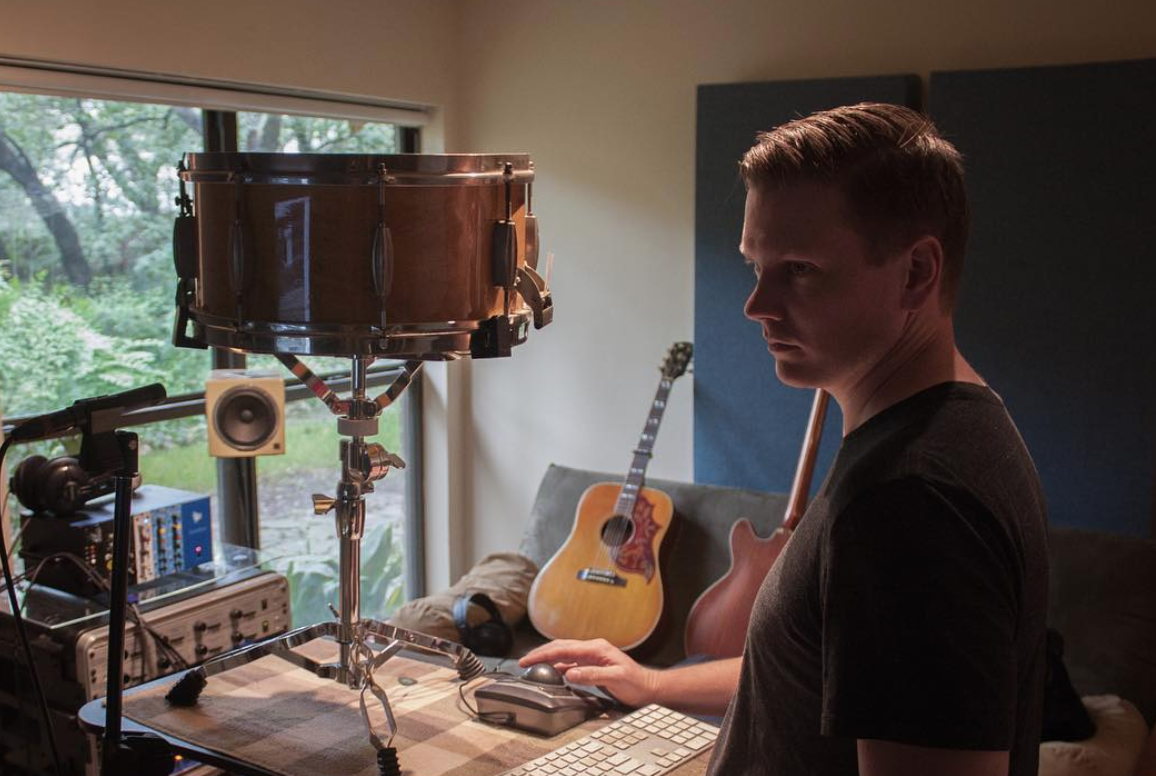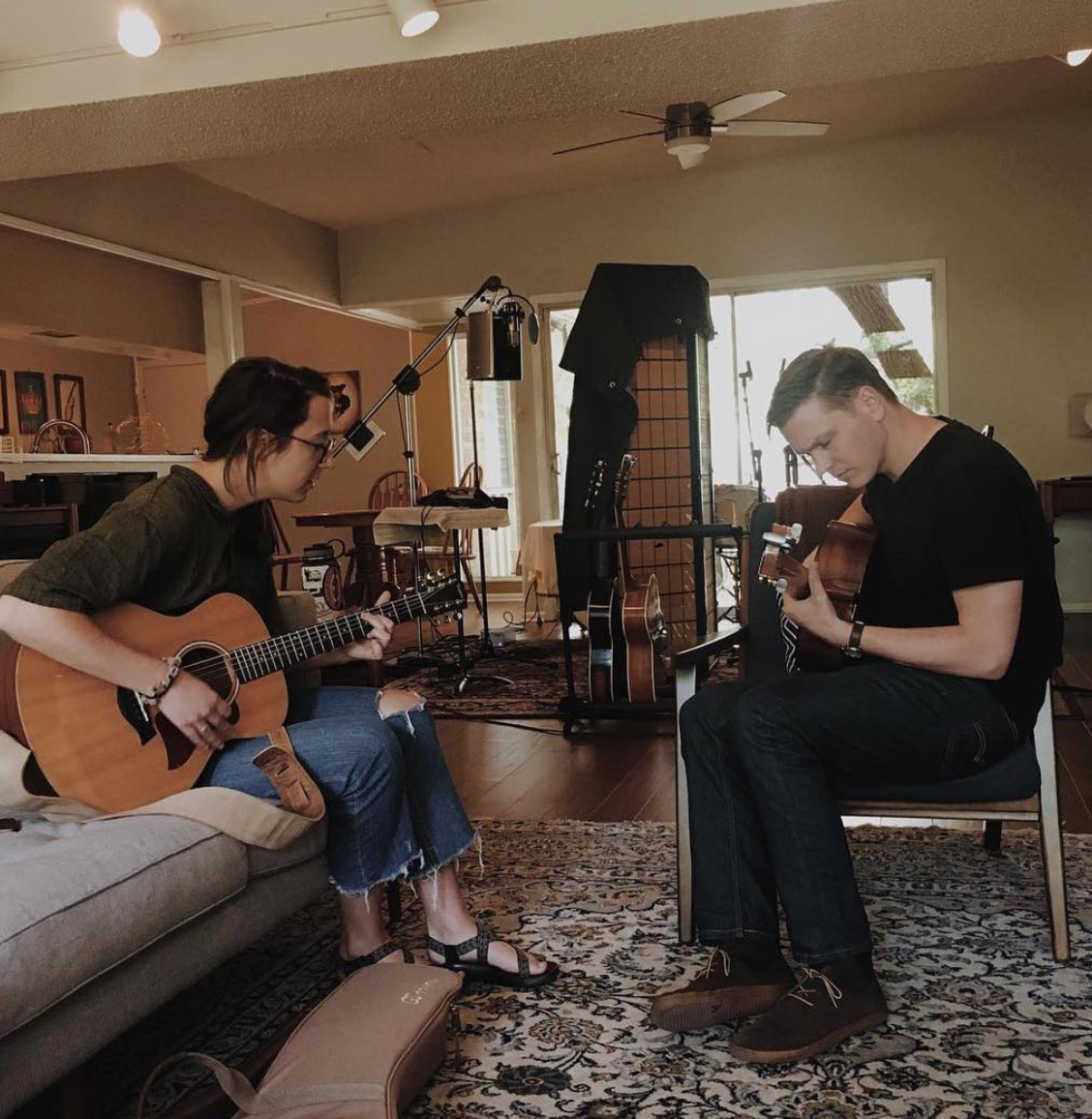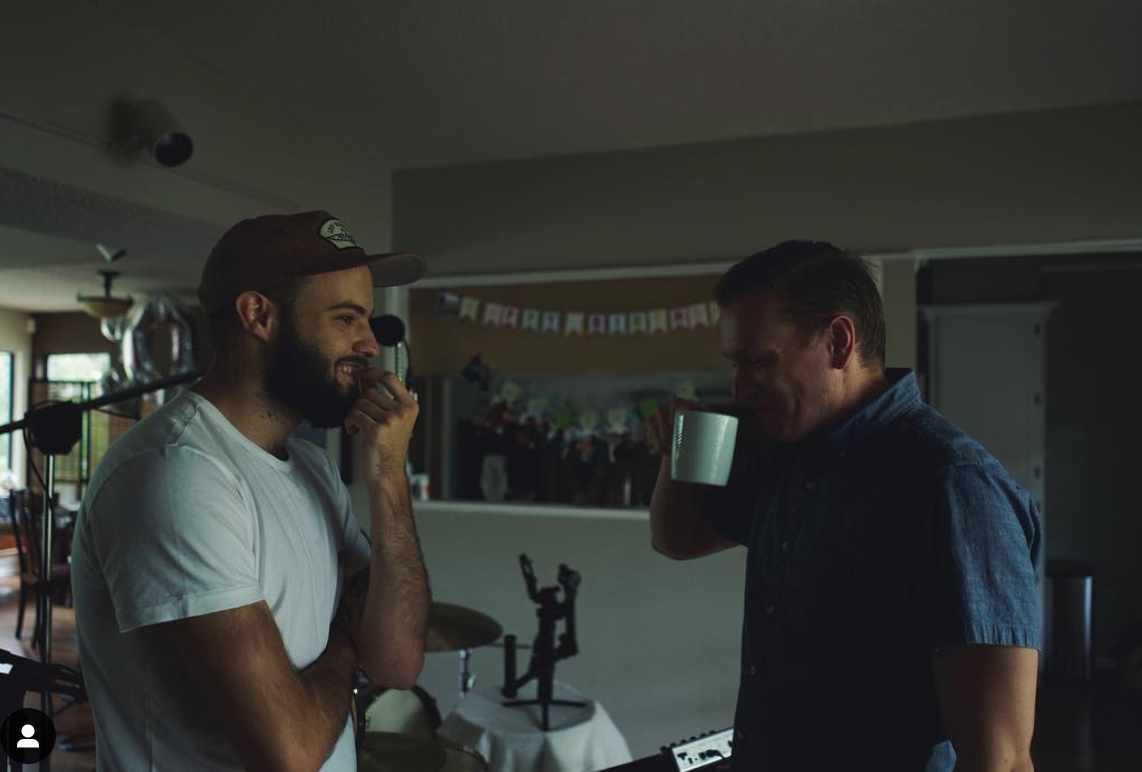Article Views: 673
Choosing a producer for your music project is a HUGE job. We’ve had lots of artists write in asking questions on this topic so we called up the best producer we know and had him share a bit about his role in the music industry.
Chris Jacobie is a record producer based in San Antonio, TX who has produced albums for the likes of Penny & Sparrow, Jarrod Dickenson, Duncan Fellows, and many others. Jacobie got his start in the record production business as a college student producing tracks for his friends. After landing at #7 on the Billboard Folk Albums chart with Penny & Sparrow’s album Tenboom, Jacobie quickly began devoting his attention to producing full time…. and has been doing so ever since. To the people that know him, Chris Jacobie is more than a producer. He is a mentor, business coach, idea creator, and musical genius for the artists that have the opportunity to work with him. We are honored to bring you an exclusive conversation with him about his career and role as a producer… go on and read below.
How would you describe your job as a Producer to someone who doesn’t have a clue what a Producer is?
One part personal trainer. One part project manager. One part life coach/therapist. I’m sure every producer approaches the role differently but for me, it’s about understanding what makes each artist unique, what their vision is, and helping them get there. Sometimes that’s getting out of the way and other times, it’s very hands on. It’s different for each artist. At the end of the project, I want the artist to sound better than they ever imagined they could, I want them to sound unique, and, most importantly, I want their music to make the listener feel something.
How did you get your start in your career?
I first became interested in production in high school. My friends pooled together to buy me a cheap interface to use with the family desktop computer. After school, I spent hours recreating and/or ripping Beatles songs. By the end of high school, I was still pretty awful but better than most of my friends. It was only natural that my friends started asking for help in college. When I graduated, I was supporting myself playing bass in country bands and producing on the side. Once Penny & Sparrow’s Tenboom came out and debuted at #7 on the Billboard Folk Albums chart, I figured I should try and transition to full-time. That was 2013, I’ve been at it ever since!
What are some of the highlights/notable achievements of your career thus far?
Landing on the Billboard Folk Album chart was pretty awesome. I’ve also had several records top the iTunes singer-songwriter chart. What’s really cool at this point, is seeing how many monthly Spotify listeners are listening to music I had a hand in. It’s probably over a million (I’m sure some are repeats though.)
What is your favorite aspect of the role of Producer?
My favorite moments are still when we listen back to what we’ve made and can’t believe we made it. It’s a surreal experience.
What would you describe as some of the key tasks/components of your role?
Gosh, there’s a lot. Way more than I knew when I got into this (same way for artists starting their careers, I’m sure.) It’s a business. So there’s all the stuff that goes with that: marketing, sales, accounting, managing people, etc. That’s probably two-thirds of my time right there. The other third, I get to make music. When it comes to music, it starts with the song. I do virtual pre-production sessions over video chat with the artist and we try and improve the song as much as possible. We also discuss production and arrangement ideas. This is THE most important part. I’m really getting a feel for who they are and what’s important to them. That will dictate all of our production decisions. I’ve started offering this as an a la carte service for artists that can’t afford to hire me to produce their entire project. After that, it’s recording, for which I have a lot of help from Mitch Webb, my engineer. In this phase, I’m managing the timeline and directing session players, some of which are remote. Then, we’re on to editing and tuning. Fixing performances so that everyone sounded like they had their best day. After that, it’s time for mixing and mastering. I usually tap Chris Bethea for both but sometimes I mix. That’s a really exciting step because you take the raw material and turn it into a finished product that, hopefully, does two things: guides the listeners ear throughout the recording and, ultimately, makes them feel something! If we don’t accomplish that, we keep tweaking the mix. It’s NOT about “sounding good.” That’s so subjective… We’re serving a way bigger picture than audio. This is art.
It’s NOT about “sounding good.” That’s so subjective… We’re serving a way bigger picture than audio. This is art.
How do you guide artists in creating their music?
Like I mentioned above, it’s about figuring out who they are (which often isn’t the same as who they think they are) and where they want to go. Then, it’s just a matter of manipulating all the production variables to get there. Sounds simple, I guess, but it’s a minefield if you don’t know what all the variables are and how to control them. I imagine it as a big Rube Goldberg machine that I have to set up just right. In addition to that, it’s a lot of communication and managing expectations. Constantly checking in to make sure that the artist is liking where we’re headed. If not, we adjust.
For artists looking for a producer… what would be your key tips or advice to choosing the right person to trust with your music?
It’s not easy. You need to find someone that you trust and click with. Also, they need experience in the genre you’re in. I’ve seen a lot of artists just head to the local studio or work with a local producer. It’s usually disastrous. The other thing is, I want you to sound like yourself and I’m 100% okay with it being your music. I’d prefer as little of my DNA to be present as possible. Of course, that’s impossible but that’s what I’m striving for. Some producers aren’t like that. Especially in pop genres. It’s their song and ideas and you’re just singing on it. Make sure that you know what you want and what your expectations are going into it.
What do you expect artists to have in place before coming to you with a project?
A collection of songs (they don’t need to be finished.) An open mind. They need drive.
How do you approach the sensitive task of discussing changes and rearrangements with artists?
I make it very clear up front that the whole process is an experiment. We’re going to constantly try things, hear the results, and pivot accordingly. I try to introduce most changes as a ‘test.’ We’re going to try it, and if it sucks, we’ll revert to the original idea or try something else. Same goes for the artist, if they want to try something, we go for it. Often times, it’s something I know won’t work but I’d rather try it and have them hear for themselves than argue. Birthing a piece of music is enough of an emotionally exhausting process already. No need to make it any more tense if we can avoid it.
Do you have a favorite musical project you’ve worked on?
This is like asking ‘who’s your favorite kid!’ IDK… I will say that Penny & Sparrow’s Struggle Pretty was the first time that I actually felt great about one of my productions.
Who would be your dream artist to work with?
Dawes and/or Brandi Carlile would be pretty great.
What is your advice for young producers looking to make it a career?
For awhile, stop listening to new music and put yourself on a diet of music that has stood the test of time. You need to know what ‘great’ feels like. Read The E-Myth by Michael Gerber. Get a job in sales until you can afford to go full-time with production. You’ll thank me later. Get started ASAP. It takes a decade to become half-decent. Don’t go into to debt to go to freaking recording school.
If you’re interested in working with Chris Jacobie, or simply checking out what he does, head over to his website and get connected!
https://www.chrisjacobie.com/




 Music4 days ago
Music4 days ago
 Alternative/Rock5 days ago
Alternative/Rock5 days ago
 Hardcore/Punk2 weeks ago
Hardcore/Punk2 weeks ago
 Culture2 weeks ago
Culture2 weeks ago
 Alternative/Rock2 weeks ago
Alternative/Rock2 weeks ago
 Features4 days ago
Features4 days ago
 Culture7 days ago
Culture7 days ago
 Music6 days ago
Music6 days ago






